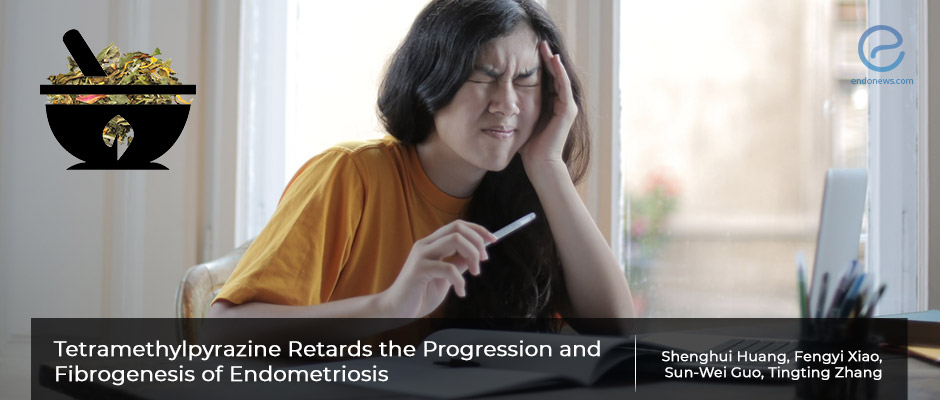Could Traditional Chinese Medicine Treat Endometriosis?
Mar 29, 2022
A compound used in traditional Chinese medicine for thousands of years could slow down the progression of endometrial lesions according to a new study.
Key Points
Highlights:
- A compound used in traditional Chinese medicine called tetramethylpyrazine could slow the progression of endometriosis lesions.
Importance:
- Non-hormonal therapeutics to treat endometriosis is still lacking, so this potential new endometriosis drug could fill the gap for this unmet medical need.
What's done here:
- Researchers used cell culture and animal experiments to assess the effect of tetramethylpyrazine on endometriosis lesions.
Key results:
- Tetramethylpyrazine treatment suppressed endothelial to mesenchymal transition, fibroblast-to-myofibroblast transdifferentiation, cellular contractility, and collagen production in a concentration-dependent manner.
- Tetramethylpyrazine significantly reduced the weight of endometrial lesions and the extent of lesional fibrosis as well as hyperalgesia in a mouse model of endometriosis.
Limitations:
- The underlying mechanism of how tetramethylpyrazine delays the progression of endometriosis lesions and fibrogenesis remains unknown.
Lay Summary
Tetramethylpyrazine, a compound derived from a herb and used in traditional Chinese medicine could be a promising drug candidate to treat endometriosis. This is according to a new study by Dr. Shenghui Huang and colleagues published in the scientific journal Reproductive Sciences.
Researchers increasingly think that endometrial lesions are wounds that undergo repeat cycles of tissue repair and injury. Platelets, therefore, play a crucial role in the progression of the disease.
Tetramethylpyrazin has been used in traditional Chinese medicine for thousands of years to combat "blood stasis” and is still used as a prescription drug in China to treat cerebrovascular disorders.
In the present study, a team of researchers led by Dr. Tingting Zhang of the Department of Gynecology, Yueyang Hospital of Integrated Traditional Chinese and Western Medicine, Shanghai University of Traditional Chinese Medicine investigated whether Tetramethylpyrazine could slow down the progression of endometriosis lesions.
The researchers conducted in vivo experiments using endometriotic epithelial cell lines and endometriotic tissue samples from patients as well as a mouse model of endometriosis.
Their results showed that treatment with Tetramethylpyrazine suppresses endothelial to mesenchymal transition, fibroblast-to-myofibroblast transdifferentiation, cellular contractility, and collagen production induced by platelets in a concentration-dependent manner.
Using the endometriosis mice, the researchers showed that Tetramethylpyrazine significantly reduced the weight of endometrial lesions and the extent of lesional fibrosis. It also improved the animals’ sensitivity to pain. This, the researchers hypothesized most likely occurred because of a reduction in the aggregation of platelets around the lesions.
“In light of our results and in view of its excellent safety profiles, Tetramethylpyrazine appears to be a promising drug candidate for treating endometriosis,” they concluded.
Research Source: https://pubmed.ncbi.nlm.nih.gov/35099777/
traditional Chinese medicine platelets epithelial to mesenchymal transition

